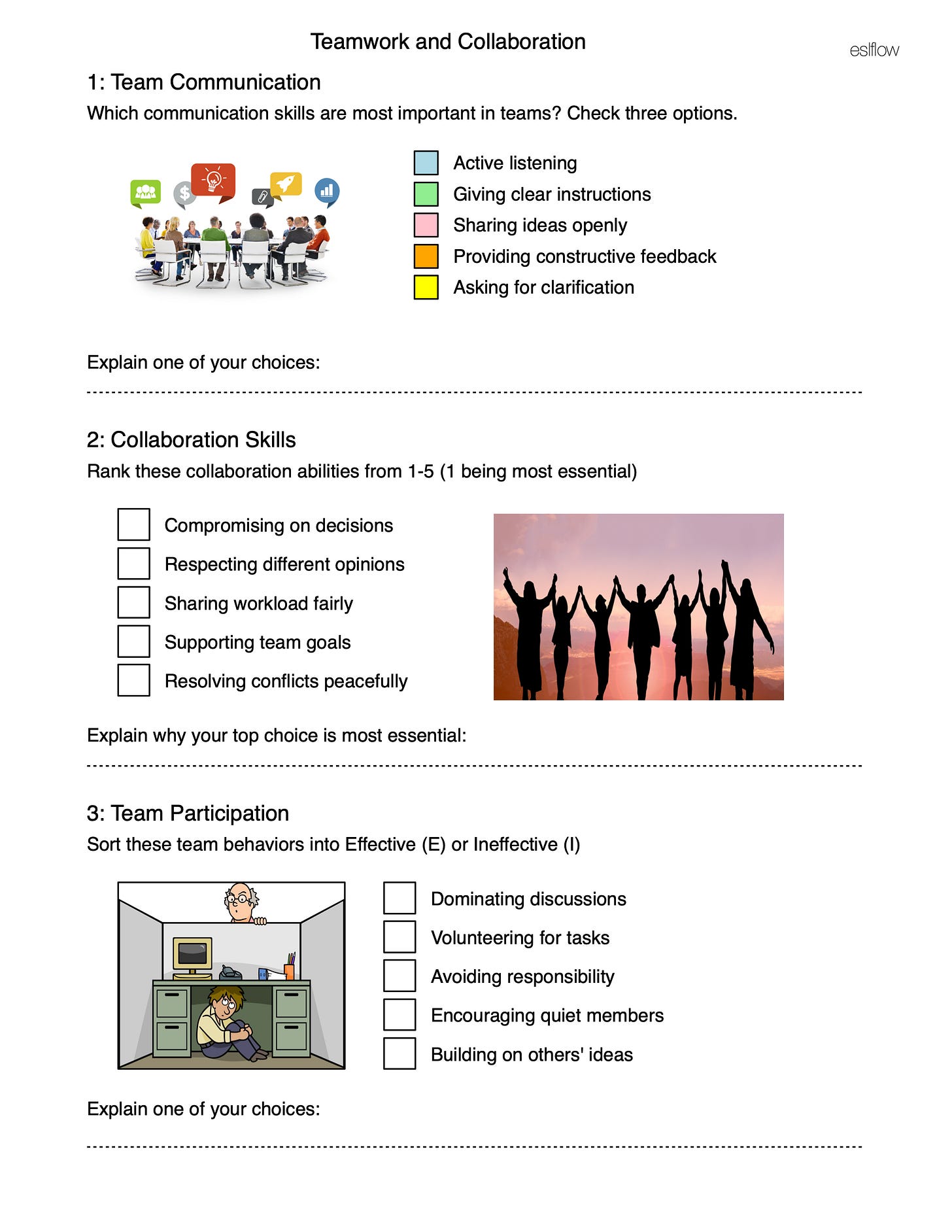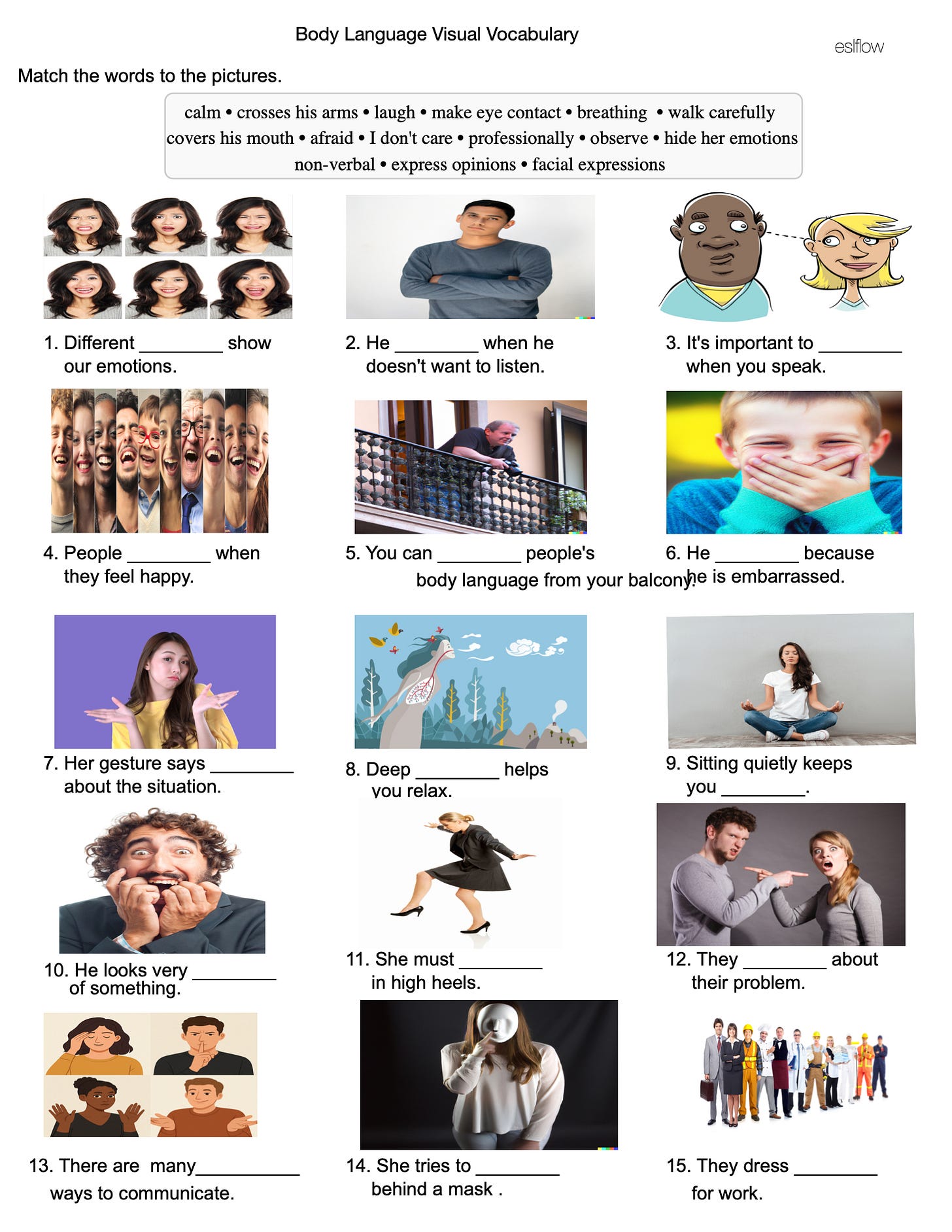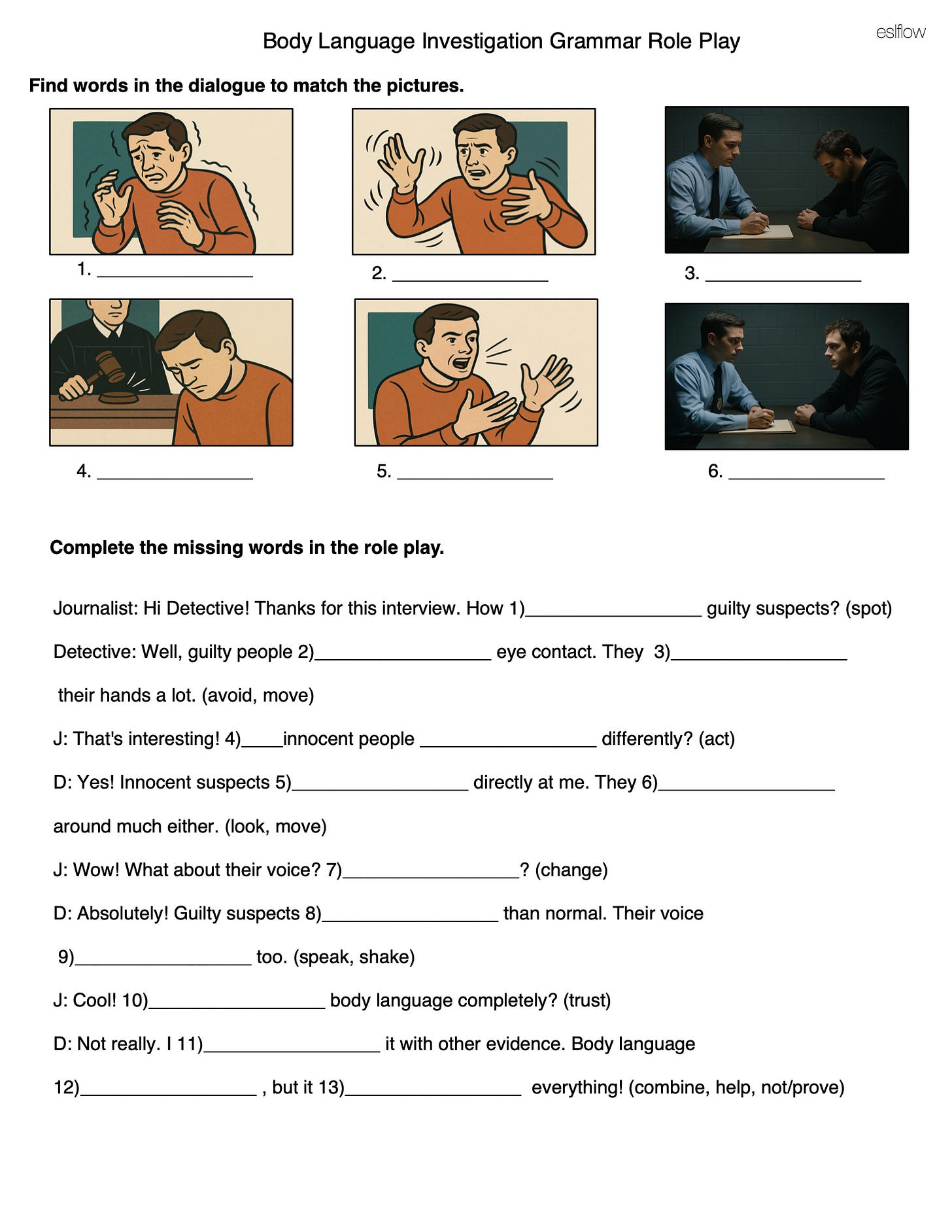Soft Skills Get an AI-Era Makeover
Completely revamped lessons for soft skills and body language
Recent developments in generative AI for audio and images prompted me to completely redesign these lessons. Through hands-on experience with AI workflows, I discovered new ways to enhance soft skills training and make these exercises more effective.
Understanding body language and gestures has become more critical than ever as we enter the age of spatial computing. Human connection and non-verbal communication skills will be essential for navigating both virtual and augmented reality environments.
These redesigned lessons develop essential workplace soft skills—emotional intelligence, work ethic, teamwork, and collaboration—through visual vocabulary, role plays, and workplace dialogues. The body language and intercultural communication module teaches you to read non-verbal signals, understand cultural differences, and master effective communication across diverse work environments.
You can download the complete lesson contents in PDF format below. The full collection of PDF, audio, and video files is available at the end of this post.
Soft Skills Workplace Dialogue
Dealing with difficult clients is an inevitable part of most jobs, making this soft skills exercise immediately applicable to real-world situations. Students develop emotional intelligence vocabulary through categorization, gap-fill, and comprehension activities centered on a workplace conflict resolution scenario.
Teamwork and Collaboration
Teamwork skills are essential for workplace success, making this topic highly relevant for English learners. This worksheet addresses real collaboration challenges through communication evaluation, skill ranking, and behavior analysis exercises.
Body Language Visual
Body language often speaks louder than words across all cultures, making this visual exercise essential for effective communication. Students match images with key nonverbal vocabulary, learning to identify and describe gestures, facial expressions, and professional behaviors through engaging picture-based activities.
Body Language Investigation Grammar Role Play
Reading people's body language is a valuable life skill, making this detective-themed exercise both engaging and practical. Students learn to identify nervous behaviors such as avoiding eye contact and fidgeting while practicing present simple grammar through a role-play interview between a detective and someone discussing how body language aids investigations.



